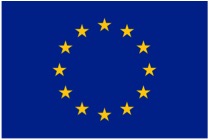Development of sustainable boxes
Coolity focuses on developing cooling boxes that have a positive impact on the environment. One way to apply positive effects is to work closely with companies and other organizations in Iceland as well as abroad in developing eco-friendly thermal packaging solutions. Such partnerships are an important step towards achieving a sustainable society, as more emphasis is put on the potential of reusable substances. By working together, you can create positive environmental values.
HISTORY
Coolity was established with the aim to market a new eco-friendly cooling box for the fish industry, especially for the transporting of fresh fish to its market place. It was founded by Anna María Petursdóttir in 2017, a seasoned entrepreneur and executive.
ECO-FRIENDLY PACKAGING
Today we face great environmental pollution challenges. A part of the problem is that we don’t recognize how this issue starts with the individual. There are obviously life style changes we can make to solve this problem. We just have to be willing to accept this issue and look past our denial. The government also needs to make regulations on plastics if anything is going to change. Private companies also play an important role in transforming thinking and choices by challenging the traditional.
Coolity believes that sustainable economic growth is an important part of the prosperity of the world’s population. Replacing natural resources for plastic is important because environmental pollution due to plastic use is a pressing problem. Coolity wants to lead the way towards a more sustainable future by producing sustainable thermal boxes.
Coolity focuses on designing environmentally friendly cooling box solution in order to optimize overall environmental performance. To meet the market criteria for performance and cost, meet the consumers choice and expectations by offering them packaging system that is recyclable effectively after use. Our aim is to turn waste into value to enhance the value of your product and by protecting the environment.
SUSTAINABILITY
Around 350 millions tones of plastic material are produced each year. The United Environment Programme (UNEP) is urging everyone to eliminate the use of microplastics and stop excessive, wasteful use of single-use plastic. But despite our best efforts, globally only 18% of plastic is recycled. Different types of plastic require different recycling processing and some plastic material is very hard to recyle. Styrofoam, the most common cooling packaging material, is hard to recycle as it picks up a lot of dirt and other contaminants during the handling process, and often just ends up as landfill. Continued growth of product that rely on cold chain packaging is forth seen. That is why there is a need to educate the market on sustainable thermal packaging.


 Coolity is proudly backed up by Technology Development Fund
Coolity is proudly backed up by Technology Development Fund